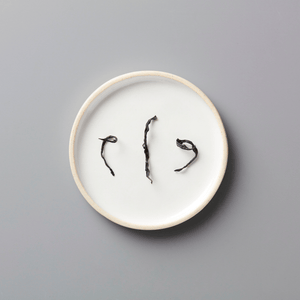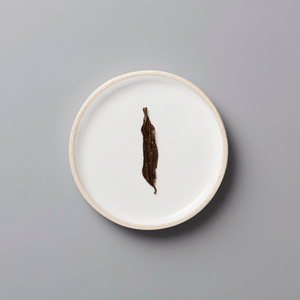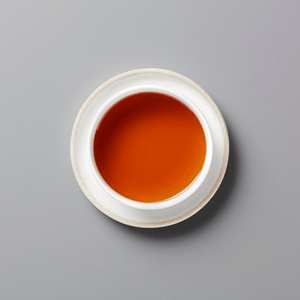Your Cart is Empty



Sold out
PANLAN 105 | yancha oolong
$5.00 - $72.00
PANLAN 105 is a huang guan yin cultivar yancha ("rock tea") from lower Wuyi, Fujian province, China. This early spring production was hand-plucked, sun-withered, manually bruised to light oxidation (think qi lan / bai ji guan), pan-fried to fix, shaped by hand in cloth sacks, and aggressively roasted in 3 rounds over charcoal pits in the classic rock tea style. Shan, our producer at Panlan tea farm, is old school—he roasts with a heavy hand, taking as much pride in his raw material as his process, and ensuring his teas will age gracefully (light roast yancha being more prone to staling). Roasted in mid-May, this lot has spent the last month airing out and settling into our storage climate.
Developed in the 1980's, huang guan yin tea trees (also referred to as "105"), are a genetic cross between jin guan yin (itself a cross between tie guan yin and huang jin gui) and huang jin gui. Mouthful, right? Interestingly, most modern tea cultivars are cross-breedings of original (or "mother") trees, other cross-bred cultivars, or some combination thereof. But what's important is how a tea's lineage informs its production and, ultimately, flavor. In 105's case, the tea is early-budding and well-suited to cultivation in harsh, rocky microclimates like Wuyi, and offers flavors and aroma not unlike tieguanyin—florality, some salinity, and slight tang, characteristics ideal for development in roasting. Shan transplanted these teas from the zhengyan ("proper rock") gardens of Wuyi national park to his zhoucha ("island tea") garden decades ago; the trees have since developed hearty, far-reaching roots that extract minerals from deep in the soil. Agrochemicals are not necessary on Dafeng mountain, where these trees grow at a staggering 1000 meters elevation.
PANLAN 105 offers exhilarating layers of hard spring water and wood charcoal on top of persistent hui gan ("returning sweetness", a lingering sweetness in the throat) and unmistakable yan yun ("rock feeling", a sense of minerality in yancha). Producer Shan's heavy roast prevents this light-oxidation oolong from offering too much in the way of sourness. Instead, the experience is easygoing through a lengthy gongfu session. Compared to higher oxidation rock teas, PANLAN 105 is the perfect late summer yancha. Flash-rinse to shed some roast, and gently steep at a moderate weight in water just under 200ºF for the intended experience.
vintage — spring '21
style — yancha ("rock tea") [huang guan yin/105]
cultivar(s) — huang guan yin ("yellow goddess of mercy")
region — Yong'an, Fujian, China
locale — Panlan tea farm
elevation — 1000 meters
producer — Shan Zhong
nomenclature — huang (黄)—"yellow" | guanyin (观音)—"goddess"
STEEPING PARAMETERS
(use freshly boiled spring water)



